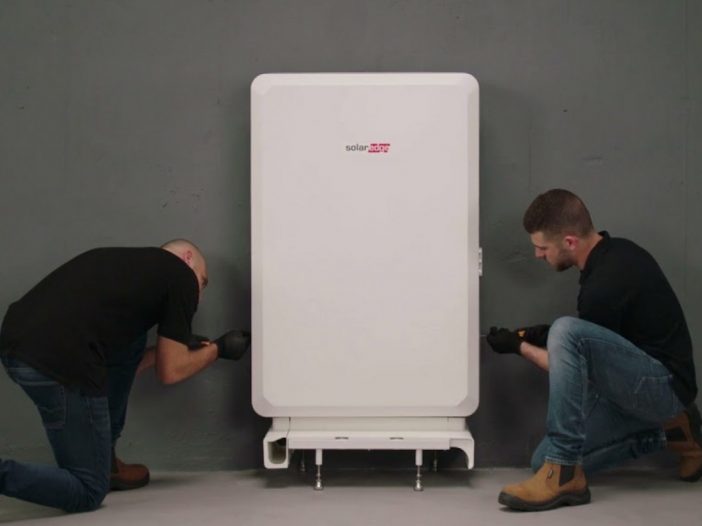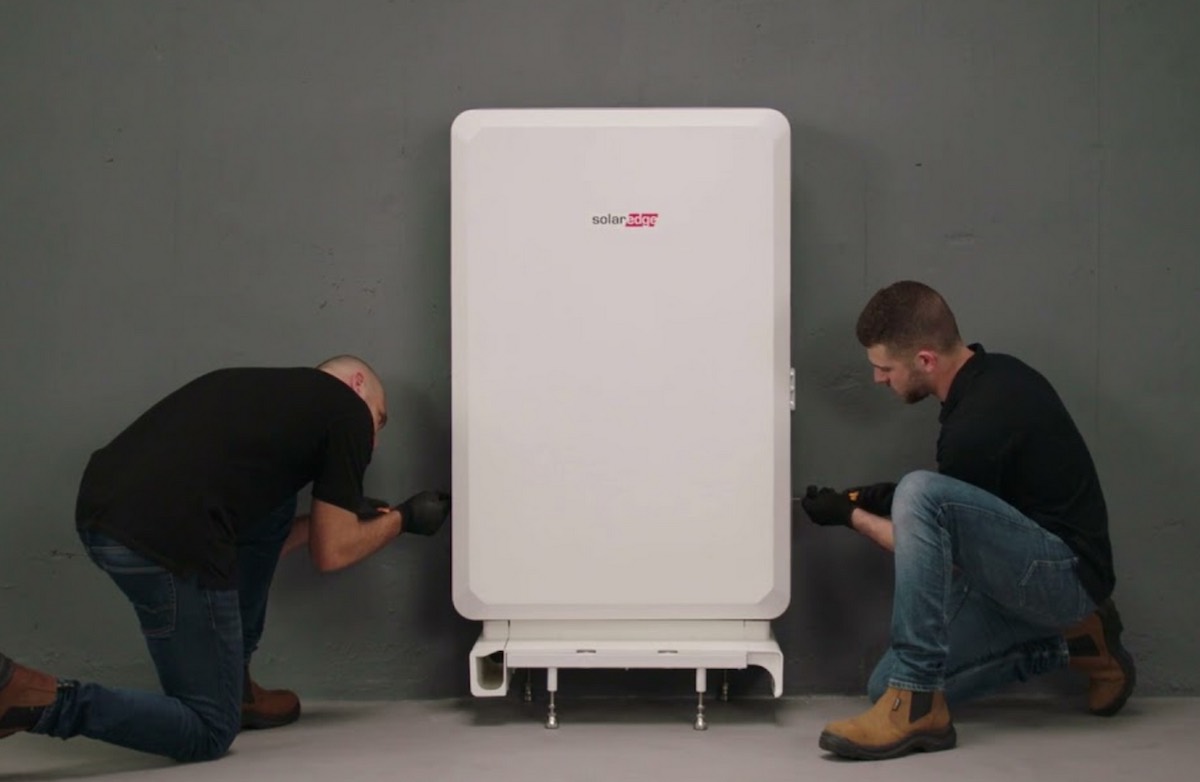
Leading global inverter company SolarEdge has officially kicked off Australian sales of its new residential battery system, launched alongside a new Energy Hub inverter, that will also provide back-up power during grid outages.
SolarEdge’s DC-coupled lithium-ion Home Battery provides 9.7kWh of energy storage capacity and can be connected with up to three batteries per inverter, delivering up to 29.1kWh of backup capacity.
The battery also lays claim to an “industry-leading” 94.5% round-trip efficiency – the measure of the percentage of electricity that is stored and then later retrieved, considered to be one of the benchmarks of a quality battery.
SolarEdge says the battery’s DC-coupled technology – requiring only one power conversion compared to three with legacy AC-coupled technology – helps accelerate the payback for the homeowner, including through its ability to simultaneously charge batteries and send energy to the grid for credits.
In the case of outages, SolarEdge says the battery’s adaptive power boost feature delivers more power to keep the home running, and can power more large appliances, like air conditioning and washers and dryers, for longer periods of time during without grid power.
The battery also offers connection to a growing line of smart add-ons, including hot water controllers and EV chargers, as in the future SolarEdge’s fast, Level 2 Smart EV Charger, which will be available in the second half of 2022.
The SolarEdge Energy Hub inverter models range from 3kW up to 10kW PV power and 10kW backup power, with 300% DC oversizing to deliver higher energy yield for the home.
The Energy Hub high backup power inverters simplify installations by connecting wirelessly with the SolarEdge Home Battery and a variety of smart energy devices, including the SolarEdge EV Charger via the SolarEdge Home Network mesh network communication protocol.
Both the SolarEdge Energy Hub inverter and the SolarEdge Home Battery are controlled from the mySolarEdge mobile app, which helps prioritise energy loads based on homeowner preferences regarding savings and/or convenience, and applies smart algorithms that aid economical decision-making.

Sophie is editor of One Step Off The Grid and deputy editor of its sister site, Renew Economy. Sophie has been writing about clean energy for more than a decade.



